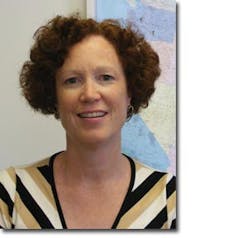In the 12 years since the National Air Transportation Association hired professional trainer Amy Koranda to head up — or establish — its training program, the group’s array of offerings has grown significantly, while the industry itself has undergone a transformation of sorts. This month a number of those training sessions will be on display at the association’s newly formulated Spring Training Week in Las Vegas. Included will be NATA’s highly successful Safety 1st — which has penetrated the market like no standardization initiative had been able to do previously. It has become a standard which, Koranda will tell you, at the end of the day was the point.
She recalls, “I was hired because they didn’t have training.” The association did, however, have one program as an anchor with which to start — the highly popular Line Service Supervisor Training course, first started in 1984. “What they hired me to do was to manage that and also offer the industry some line service training. They really wanted a standard line service training program.
“I started doing some research and went back to my boss and said, the industry says it already has training,” explains Koranda — notably those offered by fuel suppliers to their dealers.
“I looked at a good training program put on by the Aviation Training Institute; it was an all-encompassing training program,” says Koranda. In time, NATA purchased the ATI program, called the Professional Line Service Training (PLST).
Along the way, Koranda was charged with creating a test by which line technicians could obtain certification. “People going from one FBO to the next can say, ‘Hey, look, I’m Safety 1st trained,’ and people know what it is. The fuel suppliers, the insurance companies – they know what it is.”
She relates that the major obstacle to obtaining an industrywide standard was the broadly held attitude that what a particular fixed base operation was doing was good enough. Their fuel supplier’s program was good enough; their video series they purchased was good enough.
Says Koranda, “The huge change in the industry is, everyone said they wanted consistent training; we worked with fuel suppliers and the insurance companies. We tried to bring everyone along — we need your support if you want standardized training. We need your support as well to help spread the word that insurance rates are definitely impacted. You’ve got to impress on the FBOs that it makes a difference if they train and consistently train, which is something we’ve always required in the Safety 1st training program. Initial training, and then every two years recurrent training. The insurance companies definitely agree.”
With technology comes change
Since purchasing the ATI program, NATA has updated the modules and, like all training providers, has rethought how the Internet and emerging training technologies can take the programming to the next level.
“Probably the biggest opportunity that we have to push it over the edge is with online training,” comments Koranda. “It makes it a whole lot more interactive. With the upcoming generations, it’s something they relate to; being very technically savvy, they will expect their training and learning to be the same thing.
“There are so many cool things you can do to capture the learner by making them more a part of the learning process. That’s the opportunity that technology gives us. You can appeal to all the different learning senses, but at the same time you have the opportunity to be more interactive. I just think it’s an overall better experience.”
A next step for Koranda is creating training webinars, with a particular emphasis on best practices sharing.
AIE, Training Week
NATA’s array of training programs will be on tap March 16-18 in Las Vegas for the Spring Training Week being held in conjunction with the annual Aviation Industry Expo.
“We are offering seminars that we knew would captivate a different segment,” explains NATA’s Amy Koranda, “two will capture line service, either the supervisors or the line technicians themselves.” The other sessions will focus on environmental compliance and ‘FBO Success’.
For information, visit www.nata.aero or www.aviationindustryexpo.com.





